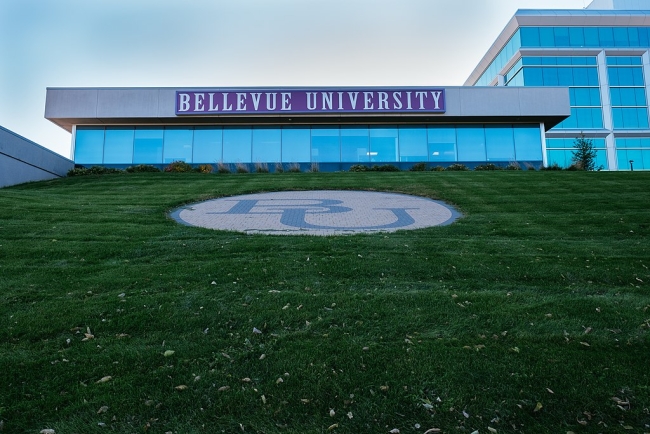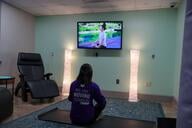You have /5 articles left.
Sign up for a free account or log in.

Wikimedia Commons/Jared Winkler
When looking at its data, ReUp Education discovered a common problem for some of the students to whom the company reached out.
ReUp helps institutions contact students who had stopped out before completing a degree in the hope that they will return and finish. The company's data show that nearly 90 percent of the students it engages with want to earn a degree, according to Sarah Horn, the company's CEO and founder. For about 75 percent of those students, returning to their original institution and picking up where they left off is a good option.
For the other 25 percent, it's not, she said.
Those results became the impetus for the ReUp Network, a group of colleges that uses ReUp to help re-enroll their stopped-out students. Students will be able to re-enroll in any of the colleges within the network, not just their original institution. Stopped-out students who aren't tied to colleges that already partner with ReUp can also reach out to the company to find a pathway to one of the colleges in the network.
"We can help students find a better path and transfer for free because we have the coaching, communications and infrastructure support," Horn said.
So far 13 colleges across 12 states are in the network, offering a total of 300 programs. Ultimately, Horn would like to have at least one partner college in each state.
"We’ve referred to this as the national on-ramp for college completion, because there’s no similar model like this in the country," she said. "We hope to serve thousands of dropouts through this model."
The project was planned for years, but it's more important now than ever, Horn said. Some 36 million Americans held some college credits and no degree before the COVID-19 pandemic swept the globe. Now, with a pandemic-induced recession and rising unemployment numbers, many fear more students will stop out.
While COVID-19 hasn't changed the network's model, it has accelerated interest in it, Horn said.
"Part of that is because we don’t know how things are going to shake out," she said. "What we are seeing from our partners and institutions is that leaders want to do the right thing. They're saying, 'Let’s do what’s in the best interest of students.'"
Bellevue University in Nebraska had been working with ReUp for a few years before joining the network.
Counselors at the university already were encouraged to help students do their best, even if that meant transferring to a different institution, said Mary Hawkins, Bellevue's president.
"Most students don’t complete where they start, but they do complete," said Matt Davis, executive vice president of administrative services at the university. "We value retention to degree over retention to an institution."
The university found a similar ethos in ReUp, Hawkins said, which is why she entrusted the company with the university's students.
While Bellevue already has a large online presence, Hawkins said they still aren't counting out future impacts from COVID-19.
"Undoubtedly for most of those students, education is going to take a back seat," Davis said, adding that the ReUp Network will help institutions and students weather the storm.
Low-Cost, Low-Risk Entry Points
Other colleges and companies are starting planned partnerships to address stop-outs, as well.
The Community College of Denver, for example, is creating an academy with StraighterLine, a company that offers online courses at lower prices.
Students who stopped out of the college, or students who applied to the college but didn't enroll in any institution, will be encouraged to enroll in CCD Academy. They will have access to a variety of courses for $150 per month, allowing them to go at their own pace, said Ruthanne Orihuela, provost and vice president for academic affairs at CCD. The college's tuition per credit is $242, though it's usually lowered to about $150 with a state fund.
The courses will give students the opportunity to earn credits at a much lower cost while easing into the process of returning to college. CCD faculty narrowed down the academy's available courses by seeing which StraighterLine courses were equivalent to ones offered by the Colorado college, Orihuela said.
"It’s just another one of those opportunities for CCD to meet students where they are, celebrate their experiences up to that point and then provide opportunities for them to ease back into the college setting with early successes," she said.
The college is the third institution to form such a partnership with StraighterLine, according to Burck Smith, CEO and founder of the company.
The low-risk, easy-entry model is something that's even more critical for students in light of COVID-19, he said.
For colleges, the partnership gives them multiple avenues to reach students. Much is still unknown for the fall, but the online program from StraighterLine can continue no matter what. The program also has a competitive price, helping it cut across other online providers, Smith said.
"People go back and get degrees during recessions, and it tends to be nontraditional students," he said. "What’s different this time is the more mature network of online providers and price competition and consumer behavior in a way that I don’t think was present a decade ago. I think students are going to ask why they are paying the same price for online versus face-to-face learning in a way they haven’t previously."
Programs like CCD Academy provide a relatively low-cost, low-risk entry point for those who want to return to college.
For Orihuela, the goals of the program haven't changed. But they are more relevant now.
"There are likely, unfortunately, to be more students who are in this boat of not going anywhere," she said. The academy provides an opportunity for them to take a few classes and regain momentum.








